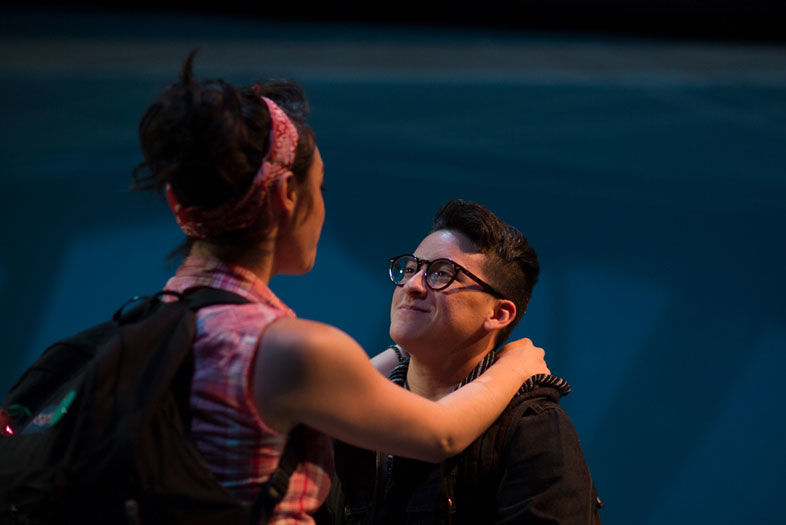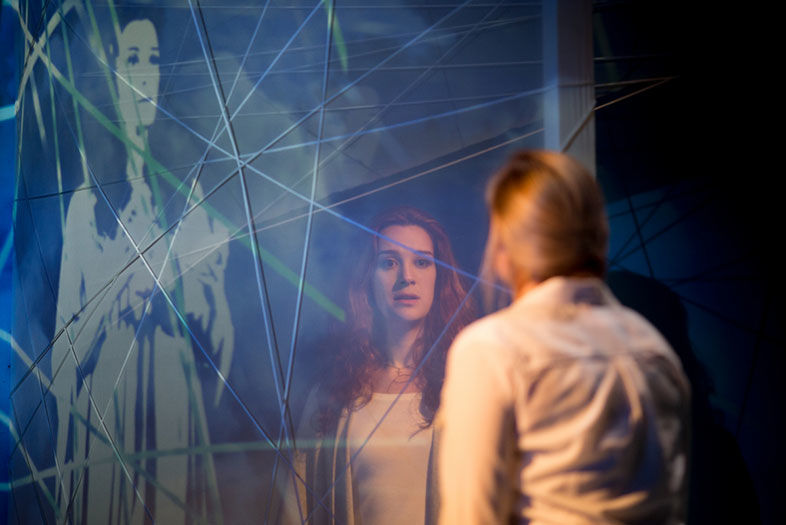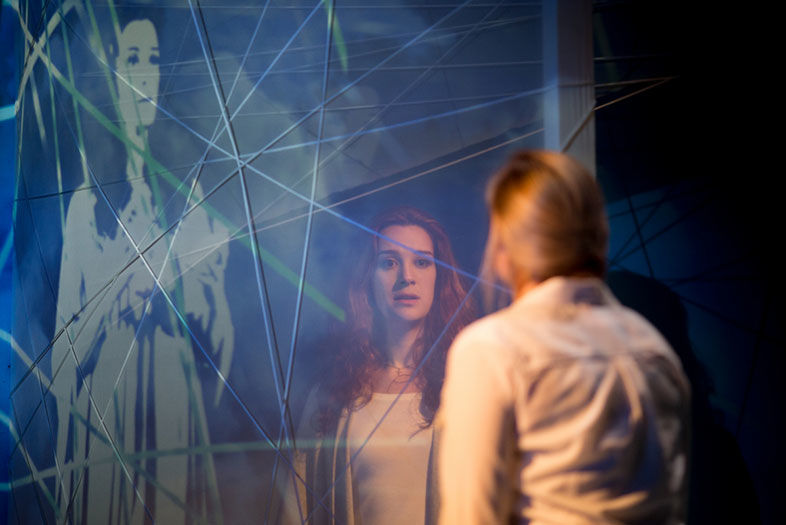The first commandment in writing school was “avoid cliché,” and one of the most dangerous clichés we were warned against was portraying dreams. Their consequences on the physical world of the narrative are minimal, went the wisdom, and what emotional resonance they can have draws from symbols that, if too abstract, read like pretty diversions, or if too concrete, like that infamous “telling” whose unreality saps it of consequence.
But the second commandment is that all writing rules can be broken, subverted, and redeemed if you know what you’re doing. No subject is unworthy of dramatic exploration in the right hands, and if dreams were meaningless ephemera then psychoanalysts would make a lot less money. Georgette Kelly’s Ballast spends at least a third of its time in its cast’s dreams, and while it could use a little more sharply defined boundary between worlds simply so the audience can keep up, tapping into the language of symbols and the interior dialogues that dreamspaces make possible ends up being a powerful, intimate way to illustrate the unique struggles faced by transgender men and women and, in this case, their cisgender partners.
The strength of the play is largely that of its projection designer, Tara Knight, who’s created a vivid suite of imagery that’s haunting, absurd, and frightening in turns, on top of being skillfully individualized for four different psyches.
Our central figure is Grace (Dana Aliya Levinson), a pastor who lives to uplift her congregation, but who’s forbidden to return to service after her transition because her marriage is now a homosexual one. She seeks out support through online groups and a gay friend, but remains conflicted about how much she fits in with the LGBT community. Her first and greatest love is the church, though accepting a new assignment would require returning to the closet, and in her dreams she attempts to preach to a crowd that rejects her as a fraud.
Zoe (Jacque Wilke) has been doing her best to support Grace’s transition, though she misses the man she married, and feels that her own identity and desires have become subsumed in the process. She dreams of taking flying lessons, which provide useful symbols in her search for how to move forward—finding one’s center of gravity, casting off the title metaphor, and so on. In the waking world, her sole compassionate ear is her mother (ensemble player Dana Case), who’s skeptical about the whole transgender concept in the first place, but understands what it’s like to become distant from your partner.

‘Ballast’ Explores Transgender Identity Through Dreams
Jennifer Paredes and Maxton Miles Baeza in Ballast.
Meanwhile, teenage Xavier (Maxton Miles Baeza) is tormented by dreams of the man he wishes he could be: ensemble player Skyler Sullivan, whose imposing figure and commanding voice serve dual masculine-dream-icon duty as both Xavier’s ideal and Zoe’s flight instructor. His image taunts Xavier, compelling him to burn all the childhood photographs of the person his mother insists is still her daughter. Baeza demonstrates an impressive attention to small touches in his acting, whether it’s a nervous leg bounce in a moment of vulnerability, or a curious prodding that intuitively transforms, in our understanding, an ambiguous set piece into fancy furniture.
Xavier’s refuge is his spritely, playful girlfriend, Savannah (Jennifer Paredes), who’s known him since kindergarten and accepts his transition without a second thought. She injects much of the energy and spirit that save the play from becoming too heavy, and her proclivity for petty theft and dreams of yearning to be loved create welcome depth in a character who might otherwise have been a stock Manic Pixie Dream Girl.
Director Matt M. Morrow deserves three cheers for casting trans actors in trans roles, putting Diversionary leaps ahead of Hollywood on the visibility front.
Our two couples wrestle with their own issues in parallel, all coming together briefly in the third act, but then parting ways again without having much visible effect on one another. This is a disappointing lost opportunity: all four characters proceed along the same trajectory they were heading to begin with, and except for a brief sympathetic conversation between Zoe and Savannah, it’s hard to see what putting them together changes or achieves besides generational juxtaposition. One sequence featuring the four leads monologuing in near-simultaneity feels like it wants to be this payoff, but is too disorienting to gather any singular feeling or image from. Hopefully, audiences with sharper focus will catch what I missed here.
Director Matt M. Morrow deserves three cheers for casting trans actors in trans roles, putting Diversionary leaps ahead of Hollywood on the visibility front. Ultimately, Ballast’s missteps are only proportional to its impressive ambitions: Its acutely observed, unflinching examinations of identity lend touching insight into two very specific experiences of being trans in ways that are relatable even to those, like Zoe’s mother, who might be new to the idea. “I just want to be me,” Xavier cries early on—you couldn’t put it more plainly than that.
Diversionary Theatre
May 4–June 4, 2017

‘Ballast’ Explores Transgender Identity Through Dreams
PARTNER CONTENT
Dana Aliya Levinson and Jacque Wilke in Ballast.


















